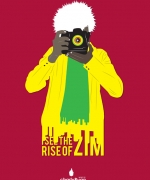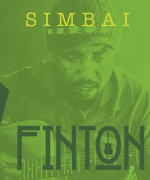Zimbabwe Must Legalise Abortion
Should abortion be legalised? This question is always sure to spark a heated argument in contemporary Zimbabwe. However, I think the answer to this question is a simple and unequivocal yes. As a question of legality and justice there is no reason for a woman to be denied the right to a safe abortion if the procedure is as a result of an informed choice premised on what is best for her and for her unborn child. I use the word “child” deliberately because the pro-life, or more accurately, the anti-choice movement which co-opted the word “life” in a stroke of political genius, would have us think that it is inhumane to kill a child, and I would agree. However a fetus is not a child. It has the potential to become a child. It is an undeveloped child; a pre-child if you will and it is not an autonomous living human being unlike its “mother”.
However, if you believe in the personhood and of an unborn fetus, I will quote Mary Elizabeth Williams who wrote, in her article, So what if abortion
ends life?
“Here’s the complicated reality in which we live: All life is not equal... Yet a fetus can be a human life without having the same rights as the woman in whose body it resides. She’s the boss. Her life and what is right for her circumstances and her health should automatically trump the rights of the non-autonomous entity inside of her. Always.”
Interestingly the debate on abortion in Zimbabwe is never a debate of the higher philosophical questions of when life begins or what constitutes the personhood and the rights of the fetus. Instead what I have often encountered are highly emotive arguments not based on empirical scientific evidence or discussions on Christian theology and the doctrine on the beginning of life or what accords a fetus personhood. It is always a matter of blind religiosity and morality and how it is “wrong” because abortion is murder; based on the predominantly Christian world views held by Zimbabweans. However, the Old Testament does not consider an aborted fetus to be a murder punishable by death. (See Exodus 21:22-23)
Abortion should not be an issue of morality based on Judeo-Christian doctrine. It is an issue of justice and civil liberty which cannot be imposed on by religious beliefs which are not necessarily subscribed to by everyone. Justice, the quality of being fair and reasonable which is the duty of the law, is allowing a woman to decide whether or not she is fit to be a mother. Justice is allowing a fetus to be given a humane end to its existence because the mother knows that she hasn’t the means: emotional, financial or otherwise to give it a humane, decent and good quality of life.
Our current legislation makes provisions for the abortion of fetuses conceived out of rape or incest; the abortion of fetuses with serious defects and where the life of the mother is at risk of grievous harm due to the pregnancy. These concessions are necessary but even then there are so many hurdles of process to obtaining an abortion that many women fail to receive the abortive services that are due to them. Like with Mildred Mapingure, the fact remains that abortion is illegal and the burden of proof rests on the woman to justify the need for abortion and the processes are long
and burdensome.
Let us face the facts: in Zimbabwe, over 70 000 illegal and unsafe abortions take place each year according to a 2005 UNICEF report. Post-abortion complications remain one of the major causes of death among women of child bearing age in Zimbabwe. There are women who want the procedure enough to risk their lives to get it. Justice is ensuring that these lives that already exist are given their full rights and protection. These people are more important than a fetus whose personhood is yet to be realised.
I believe that being pro-choice is actually being pro-life; that is, pro- the life of the woman who knows she cannot sustain another life and chooses to spare this life from coming into existence and pro- the humane end of that fetus’ life. Maternal mortality in Zimbabwe sits at a high of between 470 to 520.7 per 100 000 live births and infant mortality is even worse at 57 per 1000 births and under 5 at 84 per 1000 births (2010/2011 survey). A child born into a family that is ill-equipped to rear it will die before it even reaches the age of 5 because of disease, malnourishment, and more commonly in Zimbabwe neglect and abandonment. There are also increasing reports of infanticide and baby-dumping into sewer systems, pit latrines and dustbins. These situations should alarm us more than aborted fetuses, as these are living, breathing human beings that are declared and understood to be citizens of Zimbabwe and are afforded full human rights.
Unwanted pregnancies occur and not only because people are “irresponsible”. Access to and uptake of contraception in Zimbabwe is relatively high but even then all contraceptives have a failure rate. Unwanted pregnancies will happen for as long as heterosexual sexual activity occurs even with 100 percent adoption of birth control. On the matter of contraception: we must acknowledge that women are often called to negotiate contraceptive use with their sexual partners, including husbands. In a country where women are governed by and measured against patriarchal power dynamics, especially in the bedroom, many women must negotiate contraceptive use as they are denied their rights even on an interpersonal basis.
A sexually active woman who carries her own condoms or is on the pill is perceived to be promiscuous. A wife who wants to use condoms with her husband or is on the pill may also be accused of the same. We must also acknowledge that there are sexually active teens: either those who are curiously exploring their sexuality with their peers or those in, often transactional, relationships with older partners. For these teens contraceptives are almost impossible to access without parental consent or stigma, if they are even aware of how to prevent pregnancy and STIs. We cannot look at the issue of abortion in isolation as a question of what is right and wrong, but it must be seen as a matter of justice for the reproductive rights of Zimbabwean women and girls.
The detractors who say women will use abortion as birth control fail to look at the right to a legal and safe abortion as an element of a public health schema for comprehensive sexual and reproductive healthcare in Zimbabwe. Legalised abortion would not result in fast-food-style drive-through abortion clinics for “fast and loose” women. Legalised abortion would be regulated and occur in a controlled environment within a comprehensive healthcare system. The challenge in Zimbabwe is that we have a severely broken healthcare system that needs to be rebuilt from the ground up. As regards a comprehensive reproductive healthcare structure there would have to be a strong educational component that equips women and men with a sound understanding of sexual and reproductive health. This must start in schools to ensure that adolescents are aware of the risks of sexual activity as well as the preventive measures available. This educational component must be carried on through to adult education systems, such as public service announcements, community workshops etc. to reach those outside the schooling system and involve workforce employers, traditional leaders and other community leaders.
Within this comprehensive system, abortion must be present as an option for women who have failed to prevent conception. This allows the public health system to provide women with options and pre-abortion counselling and post-abortion care should they decide to go through with an abortion, as one of the options presented to them.
This is a far better process than for the public health system to encounter women who are coming for post-abortion care after a botched abortion which may end their lives or leave them with physical and or mental damage. These women present a larger burden to our public health system than the perceived burden of providing abortion on demand. Clearly, the simplistic scenario I have presented here is an ideal. The implementation of such a plan would require years of consistent and focused effort. However the laws of the land should uphold ideals and we should endeavour to live up to these ideals than to bury our heads in the sand of “morality” as women and children die needlessly and women are treated as second class citizens who are incapable of deciding what is best for them and their potential offspring.




